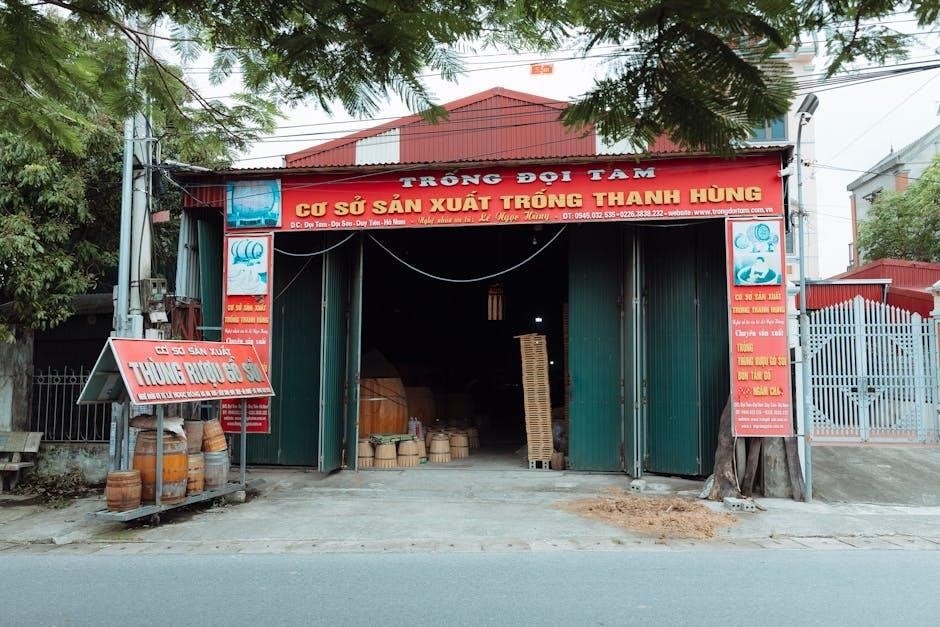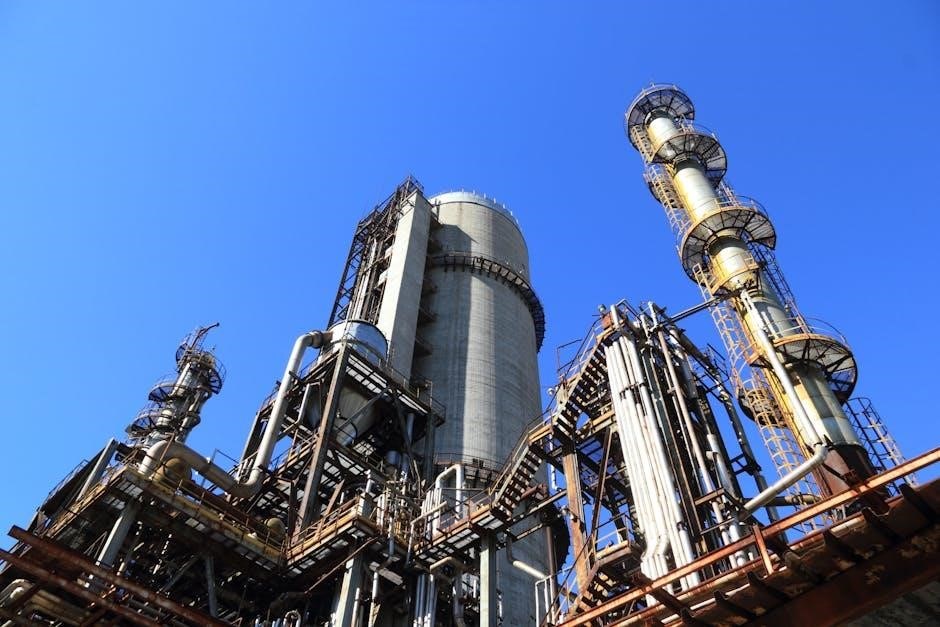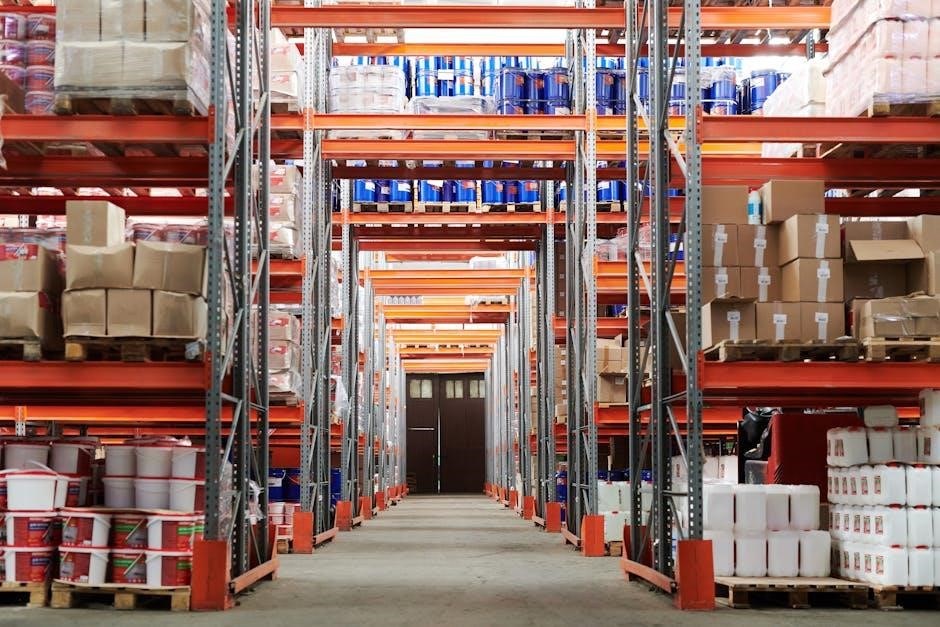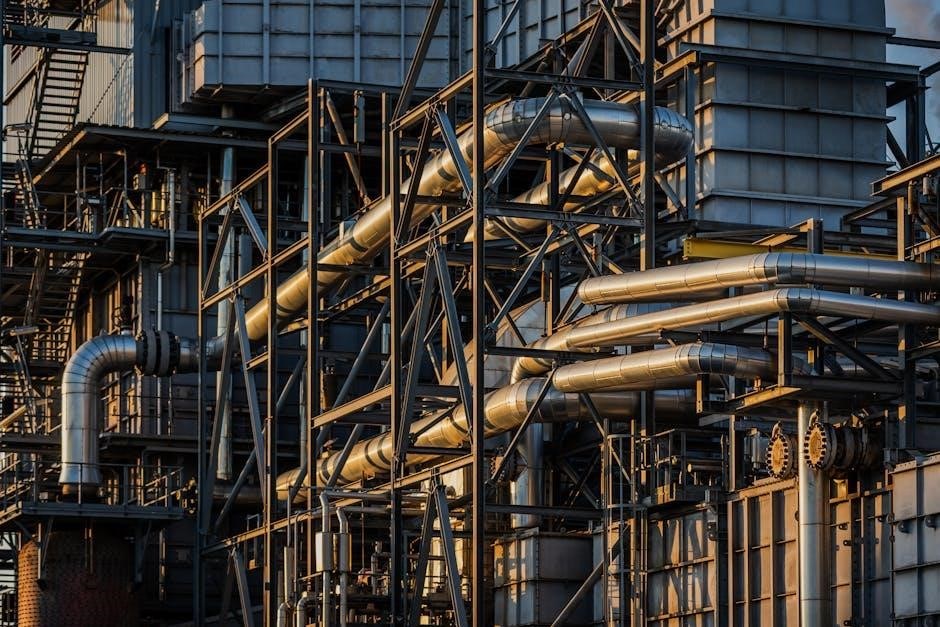Factory Mutual Approval is a certification mark ensuring products meet rigorous safety and loss prevention standards, issued by FM Approvals, part of FM Global, through extensive testing.
1.1 What is Factory Mutual Approval?
Factory Mutual Approval is a certification mark awarded to products that meet rigorous testing standards for safety, quality, and property loss prevention. Issued by FM Approvals, part of FM Global, it ensures products perform under extreme conditions like fire, wind, and water, adhering to strict criteria for reliability and durability.
1.2 The Importance of FM Approval
FM Approval ensures products meet high safety and loss prevention standards, reducing risks like fire, wind, and water damage. It builds trust with clients, enhances compliance with regulations, and minimizes property damage, making it crucial for industries seeking reliable, high-performing solutions.
1;3 Brief History of Factory Mutual
Founded in the 19th century, Factory Mutual originated as an insurance company focused on fire protection. It evolved into FM Global, with its testing division, FM Approvals, emerging to set rigorous standards. The first guide, “Approved Electrical Fittings,” was published in 1897, expanding over time to include roofing and other safety-critical products, ensuring reliable loss prevention solutions globally.
Benefits of FM Certification
FM Certification enhances safety, ensures compliance with industry standards, prevents property loss, and builds trust, demonstrating a commitment to quality and reliability.
2.1 Enhanced Safety Standards
FM Certification ensures products meet stringent safety standards, reducing risks in hazardous environments. Through rigorous testing, it verifies performance under extreme conditions, such as fire, wind, and chemical exposure, ensuring reliability and compliance with global safety regulations and industry-specific requirements.
2.2 Compliance with Industry Regulations
FM Certification ensures products comply with industry-specific regulations and global safety standards. By meeting these requirements, manufacturers demonstrate adherence to legal and technical expectations, reducing risks of non-compliance and enhancing market acceptance. This certification is recognized worldwide as a mark of reliability and adherence to established codes and standards.
2.3 Increased Property Loss Prevention
FM Certification focuses on minimizing property damage risks, such as fire, water, and structural failures. Products with FM Approval undergo rigorous testing to ensure they perform under extreme conditions, providing confidence in their ability to protect assets and reduce potential losses in industrial and commercial settings.

FM Approval Process for Manufacturers
The FM Approval Process involves rigorous testing and evaluation, including facility assessments, product design reviews, and physical tests, ensuring products meet high safety and performance standards.
3.1 Initial Facility Assessment
The FM Approval process begins with an initial facility assessment, evaluating the manufacturer’s production capabilities, quality control processes, and compliance with safety standards. This step ensures the manufacturer can consistently produce products that meet FM’s rigorous requirements before proceeding to further testing and certification.
3.2 Product Design Examination
Following the facility assessment, FM conducts a thorough review of the product’s design and engineering specifications. This ensures compliance with safety, performance, and durability standards. The examination verifies materials, blueprints, and technical documentation to confirm the product’s design meets FM’s stringent loss prevention criteria before advancing to physical testing.
3.3 Rigorous Physical Testing
FM performs extensive physical testing to evaluate a product’s performance under extreme conditions, such as fire, wind, and impact. Products are subjected to simulated real-world stresses to ensure durability and reliability. These tests confirm that products meet FM’s high standards for safety, functionality, and resistance to hazards, ensuring they perform as expected in critical situations.
3.4 Documentation and Certification
After passing rigorous testing, manufacturers receive official FM certification, including detailed documentation. This documentation outlines test results, product specifications, and compliance with FM standards. The FM Approved mark is then granted, verifying the product meets strict safety and performance criteria, and is recognized globally as a symbol of quality and reliability in preventing property loss and ensuring safety.

Key Products and Services with FM Approval
FM Approval covers critical products like roofing assemblies, fire-resistant panels, and electrical equipment, ensuring they meet high safety and performance standards to prevent property loss effectively.
4.1 Roofing Assemblies
FM Approved roofing assemblies undergo rigorous testing for resistance to hail, wind uplift, and fire, ensuring they meet the highest standards for safety and durability; These assemblies are critical for protecting properties from weather-related damage and are tested under extreme conditions to guarantee reliability and performance. Their certification is essential for minimizing property loss risks.
4.2 Fire-Resistant Panels
FM Approved fire-resistant panels undergo rigorous testing for fire endurance and thermal performance, ensuring they meet strict safety standards. These panels are designed to withstand extreme conditions, providing reliable protection in industrial and commercial settings. Their certification guarantees trust and reliability, minimizing fire-related risks and ensuring compliance with industry safety requirements for property protection.
4.3 Electrical Equipment
FM Approved electrical equipment is rigorously tested for safety, durability, and performance under extreme conditions. It meets stringent standards to prevent fire hazards and electrical failures, ensuring reliability in industrial and commercial applications. Certification guarantees compliance with national and international safety regulations, reducing property loss risks and enhancing overall safety standards for users and manufacturers alike.

Impact on Industries
FM Approval significantly enhances safety and loss prevention across industries, ensuring products meet rigorous standards, reducing risks, and fostering trust in construction, manufacturing, and risk management sectors globally.
5;1 Construction Industry
FM Approval significantly impacts the construction industry by ensuring materials and systems meet stringent safety and durability standards. Certified products, such as roofing assemblies and fire-resistant panels, reduce risks and enhance resilience against hazards like fire, wind, and hail, fostering trust and compliance in building projects globally.
5.2 Manufacturing Sector
FM Approval plays a crucial role in the manufacturing sector by ensuring products meet rigorous safety and quality standards. This certification enhances credibility, reduces property loss risks, and boosts product reliability, enabling manufacturers to comply with industry regulations and gain a competitive edge in global markets through trusted, high-performance solutions.
5.3 Risk Management and Insurance
FM Approval significantly impacts risk management and insurance by minimizing property loss risks. Insurers rely on FM-certified products to assess risks accurately, reducing potential losses. This certification ensures compliance with high safety standards, offering insurers confidence in policyholders’ adherence to loss prevention measures, ultimately benefiting businesses through enhanced risk profiles and tailored insurance solutions.

FM vs. UL: Key Differences
FM Approval, part of FM Global, focuses on loss prevention and property protection, while UL (Underwriters Laboratories) offers broader safety certifications, catering to diverse industries and standards.
6.1 Focus Areas
FM Approval focuses on property loss prevention, fire resistance, and resilience against natural disasters. UL emphasizes broader safety standards, including fire resistance, electrical safety, and consumer product compliance, impacting various industries differently through their distinct methodologies;
6.2 Testing Standards
FM Approvals employs rigorous, science-based testing standards focusing on fire resistance, hail, wind, and water ingress. UL tests against consensus-based standards, prioritizing electrical and fire safety. FM’s standards are publicly available, emphasizing transparency, while UL’s standards often involve third-party input, reflecting broader safety norms across various industries and applications.
6.3 Certification Process
FM Approvals involves a rigorous, science-based certification process, including initial facility assessments, product design reviews, and physical testing. Documentation and compliance checks ensure adherence to loss prevention standards. Unlike UL, FM focuses on property loss prevention, requiring ongoing compliance and regular audits to maintain certification, ensuring products meet high safety and performance criteria consistently.

FM Approved Mark: What It Means
The FM Approved mark signifies a product’s adherence to rigorous safety and quality standards, ensuring trust, reliability, and performance under extreme conditions, backed by scientific testing.
7.1 Quality Assurance
FM Approval ensures products meet stringent quality standards through rigorous testing, verifying reliability and performance. This certification guarantees adherence to high safety and durability benchmarks, backed by scientific research and data, ensuring trust and excellence in property loss prevention solutions globally.
7.2 Performance Under Extreme Conditions
FM Approved products undergo rigorous testing to ensure exceptional performance under extreme conditions, including fire, hail, wind, and structural stress. This certification verifies that products can withstand harsh environments, maintaining reliability and minimizing property damage in critical situations, ensuring optimal functionality when it matters most.
7.3 Trust and Reliability
The FM Approved mark symbolizes trust and reliability, backed by over a century of expertise in safety and loss prevention. It assures customers that products meet stringent standards, having undergone rigorous testing and evaluation. This certification fosters confidence, as it is issued by a globally recognized organization with a reputation for excellence and integrity.

Maintaining FM Approval
Maintaining FM Approval requires ongoing compliance with standards, regular audits, and continuous improvement to ensure products consistently meet rigorous safety and performance criteria over time.
8.1 Ongoing Compliance
Ongoing compliance with FM Approval standards ensures sustained product performance and safety. Regular facility assessments, design reviews, and updates to meet evolving criteria are essential. This process guarantees continuous alignment with FM Global’s stringent requirements, maintaining trust and reliability in certified products over time.
8.2 Regular Audits
Regular audits are crucial for maintaining FM Approval certification. These periodic inspections ensure ongoing compliance with safety and quality standards. FM Approvals conducts follow-up assessments of manufacturing processes, product design, and testing to verify continued adherence to certification requirements, ensuring products remain reliable and perform as intended under rigorous conditions.
8.4 Continuous Improvement
Continuous improvement is essential for maintaining FM Approval. Manufacturers must adopt ongoing advancements in technology and safety standards. By integrating feedback from audits and testing, companies enhance product quality and performance, ensuring compliance with evolving FM Global requirements and delivering superior safety and reliability in their certified products.
Factory Mutual Approval ensures products meet rigorous safety and quality standards, minimizing property losses and enhancing reliability. It is a trusted mark of excellence, globally recognized for performance under extreme conditions, ensuring trust and confidence in certified products and services.
9.1 Summary of FM Approval Guide
The FM Approval Guide provides a comprehensive overview of certification processes, ensuring products meet rigorous safety and loss prevention standards. It covers testing, compliance, and maintenance, offering a trusted framework for industries to minimize risks and enhance reliability. This guide is essential for manufacturers, insurers, and stakeholders seeking to uphold high-quality standards globally.
9.2 Final Thoughts on the Importance of FM Certification
FM Certification is a cornerstone of safety and loss prevention, ensuring products meet stringent global standards. It builds trust, reduces risks like fire and property damage, and fosters reliability. By adhering to FM Approved standards, industries demonstrate commitment to quality and resilience, ultimately protecting people, assets, and environments while maintaining compliance and credibility.

Be First to Comment